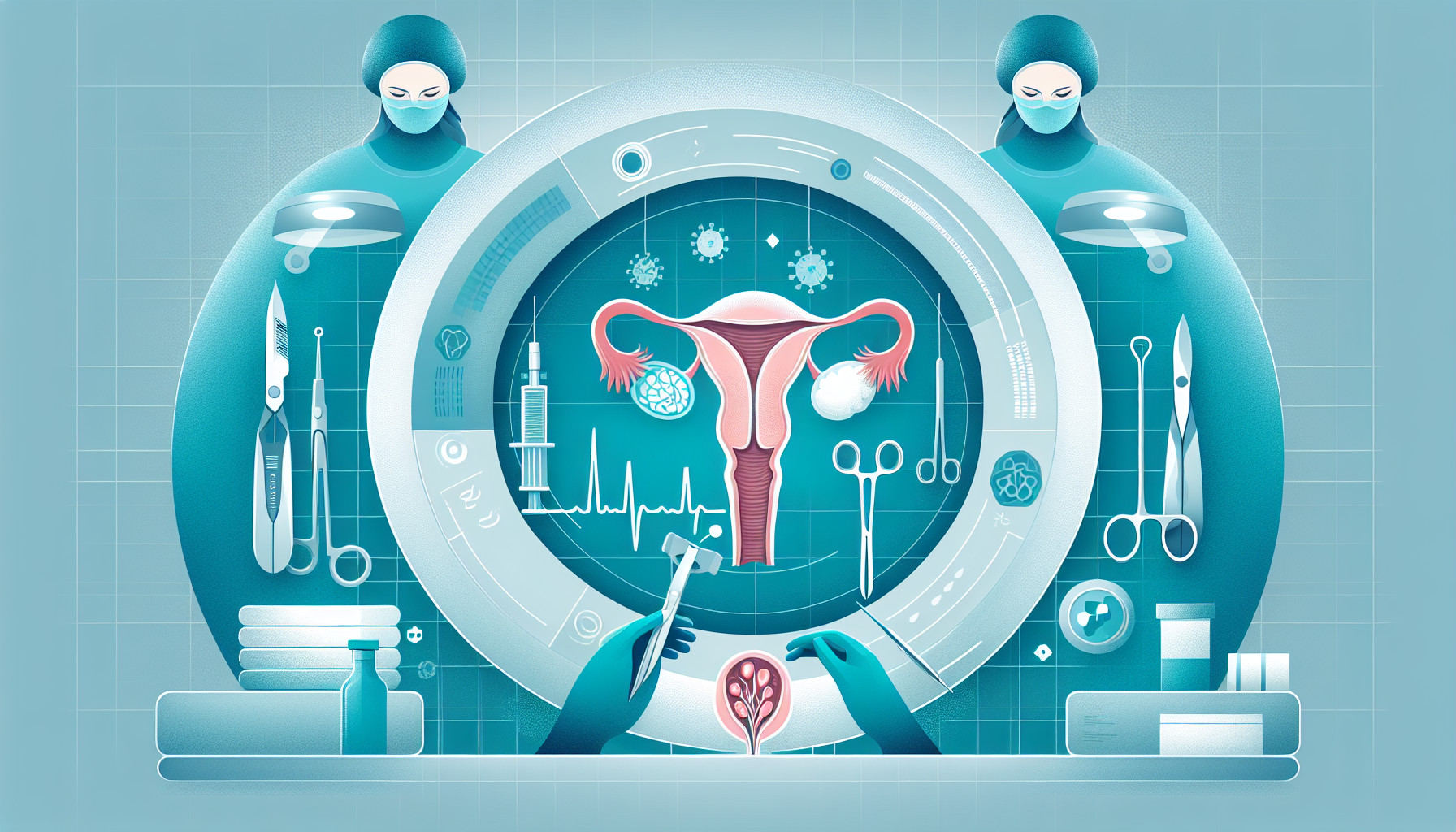Our Summary
This research paper discusses recent changes in how ovarian endometrial cysts (a type of cyst that can grow on the ovaries in a condition called endometriosis) are approached and treated. The main method of treatment is surgery, which includes the removal of the cyst and any remaining endometriosis. However, surgery isn’t always the best option, such as in patients over 35 with small, symptom-less cysts.
In cases where a woman is struggling to get pregnant after trying for 1-1.5 years, or if in vitro fertilization (IVF) isn’t a possibility for her, surgery can be considered. Large cysts, over 4 cm in diameter, should also be surgically treated due to risks of them rupturing.
Another effective way to prevent ovarian endometriosis from coming back is a procedure called unilateral oophorectomy, which involves removing one ovary but leaving the other. This is an option for women who don’t want more children or have another endometriotic cyst on the same ovary.
Medication can play a limited role in treatment and is mainly used for patients with widespread endometriosis experiencing pain. Different types of hormone medications can be used. Women struggling with infertility should aim to get pregnant as soon as possible. If they can’t get pregnant or are over 35, IVF is recommended.
FAQs
- What is the primary method of treatment for ovarian endometrial cysts?
- When can surgery be considered for women struggling with infertility due to ovarian endometrial cysts?
- Who are the candidates for the unilateral oophorectomy procedure?
Doctor’s Tip
Overall, the most important thing for patients to remember is to have open communication with their doctor about their symptoms, concerns, and treatment options. It’s important to weigh the risks and benefits of surgery and other treatments, and to work closely with your healthcare team to find the best solution for your individual situation. Regular follow-up appointments and monitoring are also crucial to ensure the success of treatment and to catch any recurrence or complications early on.
Suitable For
Overall, patients who are typically recommended for ovarian cyst removal include those with large cysts, symptoms such as pain or infertility, and those at risk of complications such as cyst rupture. The decision to undergo surgery should be made carefully, considering factors such as age, desire for future fertility, and overall health. It is important for patients to discuss their options with their healthcare provider to determine the best course of treatment for their individual situation.
Timeline
Before ovarian cyst removal:
- Patient may experience symptoms such as pelvic pain, bloating, irregular periods, painful intercourse, and difficulty getting pregnant
- Diagnosis of ovarian cyst through imaging tests such as ultrasound or MRI
- Consultation with a gynecologist or reproductive endocrinologist to discuss treatment options
- Consideration of surgery for removal of the cyst, especially if it is large or causing severe symptoms
After ovarian cyst removal:
- Recovery period following surgery, which can vary depending on the type of surgery performed (laparoscopic or open)
- Follow-up appointments with the surgeon to monitor healing and check for any complications
- Relief of symptoms such as pelvic pain and bloating
- Possible improvement in fertility for women struggling to conceive
- Consideration of additional treatments such as hormone therapy to prevent recurrence of cysts
Overall, the timeline for a patient before and after ovarian cyst removal can vary depending on individual circumstances and the specific treatment plan recommended by their healthcare provider. It is important for patients to follow their doctor’s advice and attend regular follow-up appointments to ensure optimal recovery and long-term health.
What to Ask Your Doctor
Some questions a patient should ask their doctor about ovarian cyst removal include:
- What are the risks and benefits of undergoing surgery to remove my ovarian cyst?
- What type of surgery will be performed and what is the recovery process like?
- Are there any alternative treatments or medications that could be effective in treating my ovarian cyst?
- How will removing the cyst affect my fertility and future ability to conceive?
- Are there any long-term effects or complications associated with ovarian cyst removal?
- Will I need to undergo any additional testing or monitoring after the surgery?
- How likely is it that the ovarian cyst will come back after removal?
- Are there any lifestyle changes or precautions I should take to prevent future ovarian cysts?
- What should I expect in terms of follow-up care and appointments after the surgery?
- Are there any specific considerations or recommendations for my individual case based on my age, medical history, or other factors?
Reference
Authors: Nowak-Psiorz I, Ciećwież SM, Brodowska A, Starczewski A. Journal: Adv Clin Exp Med. 2019 Mar;28(3):407-413. doi: 10.17219/acem/90767. PMID: 30659784
